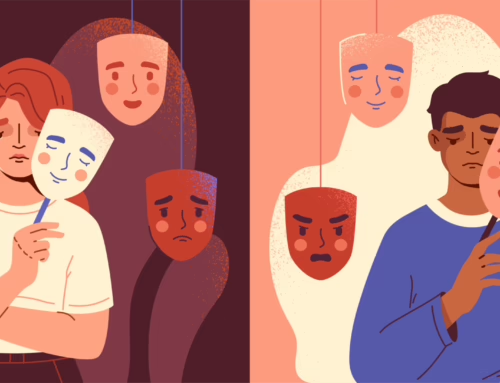“Cymbalta Ruined My Life” — Understanding the Real Pain and How Tapestry Recovery Can Help
What Is Cymbalta?
Cymbalta (generic name: duloxetine) is a prescription medication classified as a serotonin-norepinephrine reuptake inhibitor (SNRI). It’s most commonly prescribed for:
- Fibromyalgia
- Chronic musculoskeletal pain
- Diabetic nerve pain
Cymbalta works by increasing levels of serotonin and norepinephrine—two key neurotransmitters that affect mood and pain perception. For many, it can be effective in easing symptoms. However, a growing number of individuals are reporting serious side effects and difficult withdrawal experiences, leading some to describe their time on the medication as life-altering—in a negative way.
Why Are People Saying Cymbalta “Ruined My Life”?
Increased media attention and personal testimonials have brought Cymbalta’s risks into the spotlight. Though the drug is FDA-approved and widely used, it’s not without potential complications—particularly in the areas of side effects, dependency and discontinuation syndrome.
Common Side Effects of Cymbalta
Like many antidepressants, Cymbalta can cause side effects. Some may resolve over time; others may persist or worsen. Commonly reported side effects include:
- Nausea
- Drowsiness or fatigue
- Dry mouth
- Dizziness
- Headaches
- Constipation
- Increased sweating
- Loss of appetite or weight changes
- Insomnia or disrupted sleep
- Sexual dysfunction
While these side effects are known and documented, for some individuals, the intensity or duration may feel overwhelming—especially when combined with other stressors or co-occurring conditions.
More Concerning Risks: Long-Term Use and Withdrawal
What has raised the most concern in recent years isn’t just Cymbalta’s day-to-day side effects, but its long-term impact and withdrawal experience, also known as discontinuation syndrome.
1. Discontinuation Syndrome
Suddenly stopping Cymbalta—or even tapering off too quickly—can lead to severe symptoms, including:
- Brain “zaps” (electric shock-like sensations in the head)
- Dizziness or vertigo
- Nausea and vomiting
- Flu-like symptoms
- Mood swings or irritability
- Sleep disturbances
- Anxiety or panic attacks
- Suicidal thoughts (especially in younger patients)
These symptoms can last days or even weeks, and for some, the experience is so intense that they feel trapped—either by the medication or the fear of what happens without it.
2. Emotional Numbing or Cognitive Effects
Some users also report a gradual loss of emotional depth or creativity over time—describing a feeling of detachment, foggy thinking or emotional flatness that doesn’t lift even when their mood disorder improves.
3. Potential Long-Term Impacts
While research is ongoing, there is growing concern around Cymbalta’s potential to cause persistent neurological or emotional effects, especially when not tapered off carefully. These effects may include:
- Chronic fatigue
- Ongoing cognitive fog
- Memory issues
- Reduced emotional range
Why It Feels Like It’s “Ruined My Life”
For some, the combined weight of:
- Unrelenting side effects
- Intense withdrawal symptoms
- Emotional numbing or physical discomfort
- Lack of informed medical guidance
…can leave them feeling like their life was derailed. The phrase “Cymbalta ruined my life” isn’t always about a single adverse event—it’s about the cumulative emotional and physical toll over time, particularly when someone feels unsupported or misunderstood in their experience.
How Tapestry Can Help
At Tapestry, we recognize that your story with medications like Cymbalta is complex—and deeply personal. Whether you’re struggling with difficult side effects, want to come off the medication safely or are trying to recover from long-term effects, we offer a full spectrum of compassionate, evidence-based support.
Here’s how we help:
- Clinical evaluation and medication review
Our experienced team conducts a thorough assessment of your medical history, mental health and any medications you’re taking to fully understand your needs and concerns.
- Safe, medically supervised tapering
If you’re ready to stop Cymbalta, we’ll work with you and your prescribers to create a gradual, individualized tapering plan to minimize withdrawal symptoms and protect your well-being.
- Psychological and emotional support
We offer trauma-informed therapy, cognitive behavioral therapy (CBT) and other evidence-based approaches to help you manage anxiety, depression and the emotional impact of withdrawal or medication changes.
- Holistic and integrated care
Our programs support not just mental health, but your entire well-being—including nutrition, sleep hygiene, movement therapy, mindfulness and more.
- Ongoing recovery planning
Recovery doesn’t end when medication tapers down. We provide long-term care plans, peer support and aftercare connections to help you feel empowered and supported every step of the way.
You’re Not Alone — And You Deserve to Feel Like Yourself Again
If Cymbalta has left you feeling worse—not better—you’re not imagining it, and you’re not alone. What you’re experiencing is valid, and it’s something that can be addressed with the right help.
At Tapestry, our mission is to help you heal from the inside out—with respect, clinical excellence and deep compassion.
Contact us today to learn how we can help you safely step away from Cymbalta, regain your clarity and restore your life on your terms.






